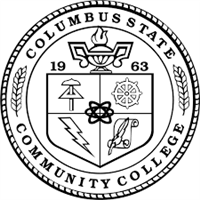What do they do?
Directly supervise and coordinate activities of workers in assigned gambling areas. May circulate among tables, observe operations, and ensure that stations and games are covered for each shift. May verify and pay off jackpots. May reset slot machines after payoffs and make repairs or adjustments to slot machines or recommend removal of slot machines for repair. May plan and organize activities and services for guests in hotels/casinos.
Also known as:
Casino Manager, Casino Shift Manager (CSM), Casino Supervisor, Floor Supervisor, Gaming Floor Supervisor, Pit Boss, Pit Supervisor, Slot Floor Person, Slot Key Person, Slot Manager, Slot Shift Manager, Slot Shift Supervisor, Slot Supervisor, Table Games Supervisor
-
3%
Change
Select a state to see its job growth rate ranking3,300Job Openings
Select a state to see its net job growth ranking
Looking for colleges that offer a specific major? Use the College Match Tool to find your best-matched schools and discover your estimated Net Price!
- High school diploma equivalent (31%)
- Some college, no degree (28%)
- Bachelor's degree (19%)
- Associate's degree (11%)
- Less than high school diploma (6%)
- Master's degree (4%)
- Doctorate or Professional Degree (1%)
People in this career often have these skills:
- Monitoring - Monitoring/Assessing performance of yourself, other individuals, or organizations to make improvements or take corrective action.
- Service Orientation - Actively looking for ways to help people.
- Active Listening - Giving full attention to what other people are saying, taking time to understand the points being made, asking questions as appropriate, and not interrupting at inappropriate times.
- Speaking - Talking to others to convey information effectively.
- Reading Comprehension - Understanding written sentences and paragraphs in work-related documents.
- Critical Thinking - Using logic and reasoning to identify the strengths and weaknesses of alternative solutions, conclusions, or approaches to problems.
- Social Perceptiveness - Being aware of others' reactions and understanding why they react as they do.
- Time Management - Managing one's own time and the time of others.
- Writing - Communicating effectively in writing as appropriate for the needs of the audience.
- Coordination - Adjusting actions in relation to others' actions.
- Management of Personnel Resources - Motivating, developing, and directing people as they work, identifying the best people for the job.
People in this career often know a lot about:
- Customer and Personal Service - Knowledge of principles and processes for providing customer and personal services. This includes customer needs assessment, meeting quality standards for services, and evaluation of customer satisfaction.
- Mathematics - Knowledge of arithmetic, algebra, geometry, calculus, statistics, and their applications.
- English Language - Knowledge of the structure and content of the English language including the meaning and spelling of words, rules of composition, and grammar.
- Administration and Management - Knowledge of business and management principles involved in strategic planning, resource allocation, human resources modeling, leadership technique, production methods, and coordination of people and resources.
- Computers and Electronics - Knowledge of circuit boards, processors, chips, electronic equipment, and computer hardware and software, including applications and programming.
- Education and Training - Knowledge of principles and methods for curriculum and training design, teaching and instruction for individuals and groups, and the measurement of training effects.
- Economics and Accounting - Knowledge of economic and accounting principles and practices, the financial markets, banking, and the analysis and reporting of financial data.
- Public Safety and Security - Knowledge of relevant equipment, policies, procedures, and strategies to promote effective local, state, or national security operations for the protection of people, data, property, and institutions.
People in this career often have talent in:
- Oral Comprehension - The ability to listen to and understand information and ideas presented through spoken words and sentences.
- Oral Expression - The ability to communicate information and ideas in speaking so others will understand.
- Problem Sensitivity - The ability to tell when something is wrong or is likely to go wrong. It does not involve solving the problem, only recognizing that there is a problem.
- Speech Recognition - The ability to identify and understand the speech of another person.
- Speech Clarity - The ability to speak clearly so others can understand you.
- Deductive Reasoning - The ability to apply general rules to specific problems to produce answers that make sense.
- Near Vision - The ability to see details at close range (within a few feet of the observer).
- Written Comprehension - The ability to read and understand information and ideas presented in writing.
- Written Expression - The ability to communicate information and ideas in writing so others will understand.
- Selective Attention - The ability to concentrate on a task over a period of time without being distracted.
- Information Ordering - The ability to arrange things or actions in a certain order or pattern according to a specific rule or set of rules (e.g., patterns of numbers, letters, words, pictures, mathematical operations).
People in this career often do these activities:
- Monitor operational quality or safety.
- Monitor patron activities to identify problems or potential problems.
- Communicate with management or other staff to resolve problems.
- Maintain financial or account records.
- Resolve customer complaints or problems.
- Greet customers, patrons, or visitors.
- Perform basic equipment maintenance.
- Maintain knowledge of business operations.
- Explain regulations, policies, or procedures.
- Conduct amusement or gaming activities.
- Operate gaming equipment.
- Respond to customer inquiries.
- Prepare operational reports or records.
- Distribute resources to patrons or employees.
- Conduct gaming transactions.
- Enforce rules or regulations.
- Assign duties or work schedules to employees.
- Evaluate employee performance.
- Supervise service workers.
- Clean facilities or equipment.
- Develop plans for programs or services.
- Manage budgets for personal services operations.
This page includes data from:

 Occupation statistics: USDOL U.S. Bureau of Labor Statistics Occupational Employment Statistics
Occupation statistics: USDOL U.S. Bureau of Labor Statistics Occupational Employment Statistics







